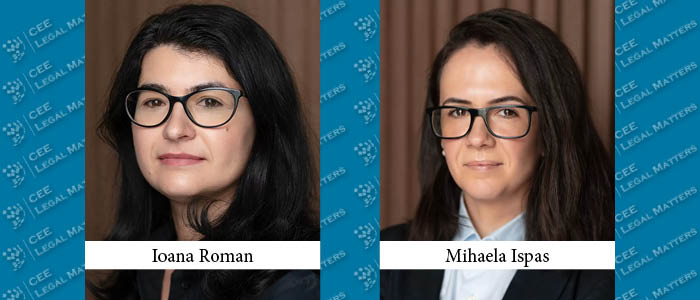For us, 2023 was a stable year, with constant and varied activity in the real estate field, despite the less favorable context, characterized by high inflation, geopolitical instability and the impact on the economy. Our team has successfully completed several transactions, “pure” real-estate and especially transactions with a predominant M&A component. We were happy to notice a series of projects with 100% Romanian capital, initiated in 2023 and completed in the same year, targeting especially companies that have expanded and diversified their portfolio.
We further noticed an increased attention of investors, both domestic and foreign, in deepening the (legal, technical and financial) due diligence analysis before starting a new project or a new acquisition, as well as a higher level of sophistication of clients, who are more familiar with the problems in the real estate field and are looking for the most effective remedies to solve them.
In the office segment, we were involved in the negotiation and entering into several lease agreements, acting both for the landlords and for the tenants, both regarding the expansion of the already existing premises or the extension of some contracts on the verge of expiration, as well as the execution of new contracts, for tenants who have relocated their headquarters or are new players on the local market. New, premium buildings ESG compliant are still in great demand, offering the widest possible range of services and activities for tenants, also considering the hybrid way of working, but with a focus on returning to the office.
The landlords put great emphasis on the implementation of the ESG concept in their development strategy, with its three components – the impact on the environment, the relationship with employees, collaborators and the community itself, as well as respecting the law and equity in the way the company acts. Also, more and more companies have announced their objective to reduce carbon emissions to zero, within a certain time horizon, by using green energy, reducing the consumption of paper, plastic and other consumables, improving energy efficiency. Compliance with these sustainability requirements is carefully monitored both by tenants (in selecting their future office) and by landlords – considering the small number of office buildings put into operation in 2023, or which are about to open their doors in 2024. The low vacancy rate of new and attractive buildings from the point of view of sustainability played in favor of the landlords, both from the perspective of the possibility of selecting tenants, and from the perspective of increasing the level of rents.
The logistics and industrial market followed the growth trend in 2023, and we believe that this will be the case in 2024 as well, in the context of several factors such as: the future opening of several new logistics hubs in the next period, the long-awaited accession of Romania to the Schengen area, the infrastructure projects that were started through the Romanian National Plan for Recovery and Resilience and for which there is a great interest to be delivered according to the already agreed schedules, in order not to lose the available funds. Of course, an essential factor in the expansion of this segment is finding the plots of land in line with the tenants’ requirements, and from this perspective there can be several limitations.
The players in the retail segment ended another very good year, in which the focus was maintained on the shopping experience of the final consumers, both in shopping malls and in retail parks. On the residential market, the general trend was no longer an upward one, considering the increase in the VAT rate from 5% to 9%, the reduced number of housing units that were put into use and the challenges related to financing.
The low number of building permits issued in 2023 was also due to the urban blockade at the level of the Bucharest Municipality, which continued last year, considering that (i) most of the sector PUZs (i.e., zonal urban plans) are currently canceled or suspended, and (ii) the adoption procedure of the long-awaited PUG (i.e., general urban plan) at the Bucharest level is still ongoing – originally planned for the end of 2023, the procedure is still ongoing, the initiation of the last stage of this process (which we emphasize does not include the subsequent approval and adoption procedure) being estimated for the end of this year.
Forecasts for 2024 – opportunities and challenges
We anticipate that 2024 will be a year of both challenges and opportunities. We have in mind the European, national, and Bucharest City elections, as well as the US elections, which will certainly have an impact on Europe as well; we await with great interest the entry into force of the new Code of territorial development, urbanism and constructions, which aims to reform the authorization procedure for real estate projects; we also hope for more legislative predictability and greater openness from the authorities towards the market and investors.
Also, the new year comes with new opportunities – we are referring to the accession to the Schengen area, the major infrastructure projects that are to be implemented or initiated, the confirmation of Romania as a pole of stability in the region, with premises for growth and investment. Investors still have an interest in the real estate field, there are various projects already under the radar of several potential buyers for some time.
In order to encourage more investments in Romania, there are three main things that need to happen: simplify permits, clarify, and streamline urban planning and decrease transactional and administrative costs.
Despite the existing legislative/ bureaucratic and economic hurdles, there are various opportunities to be pursued on the Romanian real estate market and we are confident that investors who are interested in a sustainable and valuable project will find suitable opportunities on the market in Romania.
By Ioana Roman, Partner, and Mihaela Ispas Counsel, Filip & Company




